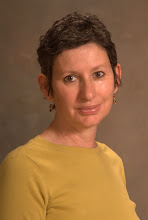Cancer treatments do eventually come to an end. Last week, Frank, another patient whose daily radiation treatment was scheduled close to mine, received his last dose.
I talked to Frank's wife, while he was with the technicians. She told me that Frank was so diminished by all of the attacks against his cancer, she wasn't sure he was aware that he was receiving his last treatment. Frank's tumor is located in his throat and is inoperable because of its proximity to the carotid artery. He finds it difficult to speak, and his wife stays close to his side. Nearly 80-years-old, Frank underwent chemo and radiation simultaneously. His wife said that he was so weak after his treatment the day before, the hospital staff transported him to their car in a wheelchair.
Frank returned to the waiting room after his last session, and he and his wife exchanged a few words before Frank left again to change into his street clothes. Frank's wife then reached into her totebag and pulled out a box of chocolates. At the same time, Bill, the ever-present hospital volunteer, walked into the room. Frank's wife stood up, presented Bill with the chocolates as a gift, and expressed her deep appreciation for all of his support.
The waiting room for radiation patients is tiny and intimate. I was sitting only a few feet away, and by chance, I was very much drawn into this private exchange. Bill was obviously touched by the gift, and Frank's wife was clearly grateful for whatever words of encouragement Bill had imparted during the preceding weeks.
In talking to Bill earlier, I had learned that he had cancer, himself, four years ago, so he brings a survivor's perspective to his conversations with patients. My guess is that he and Frank, men who are close in age, understood each other and formed a solid bond. By the time the chocolates had changed hands, everyone was misty-eyed, including me. Although it was only a token, the thank you gift to Bill -- and the emotions that accompanied it -- spoke loudly about giving and receiving and about our collective need to lean on each other.
I don't know what Frank's future will hold -- only that he has a strong network in his wife, four grown daughters and his grandchildren. Like Frank, my cancer treatments will also soon come to an end, but emerging from 10 months of medical care raises questions. Where will I find myself when the detour is over? In what ways will I have changed along the way?
7/14/08
Subscribe to:
Post Comments (Atom)





No comments:
Post a Comment